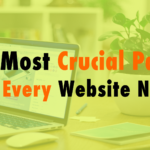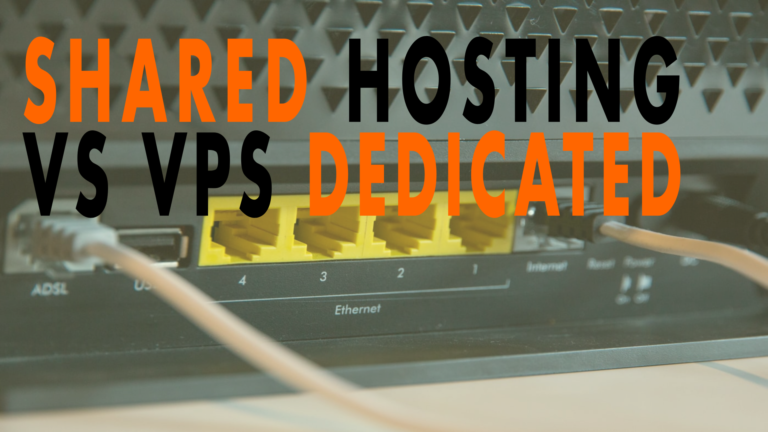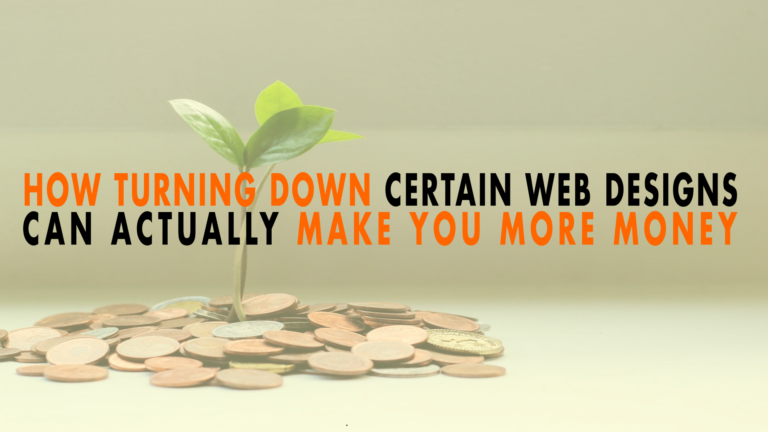The Most Crucial Pages that Every Website Needs
- Home (landing) 00:45
- About 02:51
- Contact 05:48
- Services/Features 08:00
- Blog 10:02
Read the full episode transcript below:
00:28 David Blackmon: Welcome to another episode of WP The Podcast, my name is David Blackmon.
00:35 Tim Strifler: And i’m Tim Strifler
00:38 David Blackmon: Today and episode 735. We’ve got the most crucial pages that every website needs to have. This is a minimum. If you’re in business and you’re online, you need to make sure you have at least these five pages. And we’re going to talk about why as well. And to get things started off, the first thing that you need, obviously, is a home page. Some people call it a landing page or home page. I follow the home page, but it is the page that the main you know, where people land first on your website. So if they they go to your website or they see your URL, they’re going to type in and click on it or find it. And they’re going to take you to this page. And this page is really, really important. It’s probably the most important page because it’s going to determine where your audience goes. So knowing who your audience is, you know, it’s called an avatar online. If you haven’t done this, it’s okay. It’s not the end of the world. I find that a lot of businesses, they’re intuitive. They know who their customers are. They know who their ideal customer is. They know mostly why they’re coming to their website. If you don’t know why your visitors are coming to your website, you need to know why. That’s really important because site architecture matters. We’re going to talk about that in tomorrow’s episode. But the homepage is going to determine where you want to funnel these people. So if you are selling a service or a product, some of these other pages that we’re going to talk about, you’re going to drive them there. If your main goal is to acquire users so that you can market to them through email or whatever it is, this is the page that’s going to kind of determine the direction of the story that you want to tell when they come to your website. Don’t just think you need to have a website up and throw your homepage up and and you’re all good. You want to think about your visitor, why they’re coming to your website and the story that you want to tell them, and then you want to build that. So we’ll get into more detail about this tomorrow. But homepage, absolutely 100% need to have it. What’s the next one down?
02:51 Tim Strifler: Yeah, the next one is the about page. Now I remember maybe like five, seven years ago, like in the web design world, people were kind of like pooping on the about page. Again, no one goes to that like who cares about the about page and stuff. And, and maybe that was true at that time, but the about page today, people want to know who you are or who your client is before they make a purchase decision or a hiring decision. And so or it could be that people would say that you’re about pages release visited but I would argue that maybe it’s the least visited but it’s the people that do visit are the ones that are like seriously considering hiring you. Yeah. And so I’ve seen because David and I were in the product space, you know, I don’t do front line customer support by any means, but occasionally I do jump in if my team needs me to look at something. So I’ve seen a lot of websites for web designers, right? And so many of them, they’re about page are just ultra generic. So it’s not enough just to have an about page, right? We’re talking about the five most crucial pages you need on every website, but it’s not just about having them, right? It’s not you don’t just check it off the list and just say you have an about page and then make it super generic. You want to make it personal. Like there’s so many pages where it’s like talking about a web design company. It’s like, you know, blah, blah, blah, x, y, z, web design company seeks to serve their customers with exemplary customer service and dedication and, you know, the utmost service and blah, blah, blah. It’s just like, you know, it’s terrible. And it’s like it’s like, how do I know who you are? And so you’re about Page. First of all, should tell the story of the business who you are. It should be very personal. If you’re a one person shop, a solopreneur, own it, talk directly to your customer, use I language. I started this business, blah blah blah. If you’re more of an agency, yeah, you can have more of a professional, you know, kind of third person point of view when you’re talking. But tell the story of how the company came to be. And then here’s a big one. Such a big missed opportunity is have pictures of yourself, of you and your team. If you have a team and show who you are that makes people want to hire you when they can see who you are, they have a face to the name. And it’s not just boring generic like paragraph text that actually tells the story, tells who who’s behind this business. And that’s what people get excited about. They, they, even though they’re hiring a business, they want to hire the people behind that not. So anyways, that’s my little rant because I’ve seen so many terrible about Page over the years and if you go to my agency website Tim Stark dot com, I’m not following any of the things that I just rant about, but it’s because I haven’t updated that website in literally like eight years. So it’s been a long time.
05:48 David Blackmon: Yeah, I think yeah. I think client services is a little bit different than than products. You know, we predominantly work in the digital products space. So, you know, if you’re in the client services, like Tim said, you definitely want to connect with that their customer and stuff so that they can get a feel and get to know you and want to do business with the end stuff. Next on our list is, believe it or not, a contact page. Yes, folks, you need to allow people to contact you. So if your and whatever your preferred method of contact is, what you should focus on. If you only want them to send you an email, then set up a simple contact form, allow them to contact you through email. Don’t put phone numbers on your website if you don’t want it to call you, because trust me, people will call you. And I hate to tell you the people that really want to call you, even if you don’t have a phone number on there, they’re going to find a phone number for you because I have gotten calls from customers all around the world on my cell phone because it’s the Internet. All of our stuff is out there. It’s some and there are some phenomenal Internet sleuths. Hey, I’m one of them I’m pretty good at. I want to track somebody down figuring out how to how to find them and stuff. So Contact Page is important. One thing that I will note on the contact page or anywhere on your website, if you do use email and if you post your email or your telephone number, bots will pick that up. So you need to somehow describe, you know, discreetly share that narrow ways to do it. We won’t go in. Maybe this is a good topic for the future, Tim, about how you can obscure, you know, your contact information so that bots, spam bots aren’t gathering all that data so they can spam you and stuff. So contact page, think about the most preferred method of how you want to be contacted and focus on that.
07:54 Tim Strifler: I’m just adding that topic to our list.
07:56 David Blackmon: Awesome
08:00 Tim Strifler: I refined that later. All right. So next page. Most crucial page is a services or features page. So depending on if you are in a service business, web design, accounting, know whatever, or you have some sort of a product, physical product, whatever, having the features on there, you want it. Your website can be a sales tool, but you need to allow it to do that, right? You don’t want just generic information like we’ve mentioned, you want to go into detail about what you provide, what you can do, and really get people excited about hiring you. And so that’s kind of the goal of the services and features. Page So depending on what you do, how many services you offer or how many products, whatever, you might have multiple pages in this category. So for example, a web designer might have a services page that has the general services of Here’s everything we provide, and then you can potentially have those click off into their own pages and you have a whole page on the web design, you know, with some case studies, and then you have another page for SEO services if that’s something you offer. So but this is really where like if people are reading these pages, like they’re interested in hiring you, like sell them, tell the story, get them excited, have clear call to actions. You know, if they’re on your web design page, that means they’re interested in hiring you to build them a website. So yeah, make it easy for them.
09:27 David Blackmon: And here’s one thing that I want to say that we really haven’t talked about on these other pages, but it’s extremely important for this page. These pages, these services and features are an opportunity for you to present not only to the world but to the search engines. So content on these pages really, really matters. And you can be ranked. So the more content, the more granular and detailed you get, your customers may not read it all. You need to make sure and we’ll talk about site architecture and how you structure it tomorrow. But the search engines do, and the more that you have, the more they really like it. So we’ll talk about how you may want to outline that stuff in tomorrow and stuff. But this is an opportunity, two pronged to get ranked, find new customers as well as close them with the content that you have on on your site and stuff. Last but not least, minimum what you want to have. And you may you may be like, why in the world what I want this on my website. I don’t have time to this. I make pizzas nobody’s going to care about. I’m not, you know, and it’s a blog and it dovetails and ties in with what I was just talking about. So think about a website. You’ve got this brand new website, you’re excited about it, you launch it to the world, you notify the search engines, Hey, I’m a brand new website. I’m out here. Come on over here and index me so that you can start ranking me, you know, for my products and services that I want to sell to the world, whatever that is. And, you know, you’ve got this static website up and your content doesn’t change and search engines are smart. They’re bots and algorithms that they use are they’re almost if I don’t know, maybe I’d venture to say they’re smarter than a human being because they’re able to discern, you know, good quality content from terrible, crappy content that people are just throwing up doesn’t work anymore. You got to be really, really smart about what you’re putting out there and stuff. But also, you know, the way search engines work those so spiders come to your website. They’re called spiders and they’re robots and they crawl all of the content on your site and they say, okay, Dave’s pizza house is a pizza restaurant and they’re located in Gettysburg, Pennsylvania. And their claim to fame is this. And they come back the very next day and they crawl the site again and the bots are taking notations and it takes a time, a little bit of time for this to happen. It doesn’t happen overnight, but they’re gathering data. And if one thing that they notice is that, okay, after one week, nothing on this website has changed. After one month of crawling this website, nothing on this website has changed. The search engines are going to make a decision at some point, per their algorithms to not crawl your site anymore. Okay. This is a static Web site. We don’t need to crawl that. Well, how does that hurt you? Well, it hurts you because your competitors, search engines want to see you as an authority in a specific niche. So if you’re a pizza maker, you got to, you know, talk about why you’re the greatest pizza maker on planet Earth, what sets you apart, which. Differentiate you from your competition. And if you can be helpful to people that are perusing your site, then then it’s pizza’s a really bad example, but I wanted to give a really bad example because pizza houses are going to be like, I’m not blogging, you know? But I guarantee you, if you’re a new pizza place and they got the established pizza place in town and you want to kick their blood and they’re not blogging, you start putting out some content about pizzas, making pizzas, being helpful, doing whatever, how to make pizza from all our secret pizza sauce, whatever in a blog format. The search engines are going to start seeing as an authority in that niche, and then you’ll rank higher than than the old, you know, people that have been around forever. Now, a blog allows you to constantly update your Web site with new content, which keeps the search engines engaged and keeps them coming to your website, which basically keeps it top of mind. You know, they start to see you as an authority, like I said, and you’ll start to outrank your competitors, because most people are not blogging. They’re just not you know, most small businesses don’t have the time. They don’t have the resources. And if you can figure it out, it can be a game changer for your small business, especially if you’re in web design. A lot of web designers know these tricks, so you’re probably going to be competing with a lot of blogs, and if you’re not doing it, you’re definitely behind the curve and screwed. So I hope this information helps. Those are the five most crucial pages that every website needs. Now, tomorrow, we’re going to talk about what site architecture is and why it’s important for you and your business. Tim, anything else to add?
14:48 Tim Strifler: That’ll do it.
14:49 David Blackmon: Until tomorrow. We’ll see you then.
14:52 Tim Strifler: Take care, bye.

Did you Enjoy this Episode?
- Will you consider sharing it online? Just click one of the share buttons below!
- Will you leave us a review? 🙂
- Have a question, or a topic request? Let us know in the comments below!
Want to Connect with David & Tim?
- David:
- Tim:








